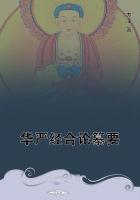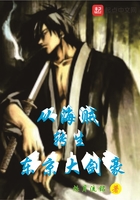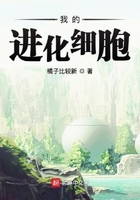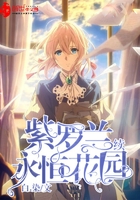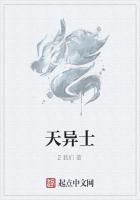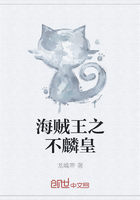The boy, thus stimulated, naturally and out of bravado, assumed a resolute manner. That turn once given to his character, he became very adroit at all bodily exercises; his fights at the Lyceum taught him the endurance and contempt for pain which lays the foundation of military valor. He also acquired, very naturally, a distaste for study; public education being unable to solve the difficult problem of developing "pari passu" the body and the mind.
Agathe believed that the purely physical resemblance which Philippe bore to her carried with it a moral likeness; and she confidently expected him to show at a future day her own delicacy of feeling, heightened by the vigor of manhood. Philippe was fifteen years old when his mother moved into the melancholy appartement in the rue Mazarin; and the winning ways of a lad of that age went far to confirm the maternal beliefs. Joseph, three years younger, was like his father, but only on the defective side. In the first place, his thick black hair was always in disorder, no matter what pains were taken with it; while Philippe's, notwithstanding his vivacity, was invariably neat. Then, by some mysterious fatality, Joseph could not keep his clothes clean; dress him in new clothes, and he immediately made them look like old ones. The elder, on the other hand, took care of his things out of mere vanity. Unconsciously, the mother acquired a habit of scolding Joseph and holding up his brother as an example to him. Agathe did not treat the two children alike; when she went to fetch them from school, the thought in her mind as to Joseph always was, "What sort of state shall I find him in?" These trifles drove her heart into the gulf of maternal preference.
No one among the very ordinary persons who made the society of the two widows--neither old Du Bruel nor old Claparon, nor Desroches the father, nor even the Abbe Loraux, Agathe's confessor--noticed Joseph's faculty for observation. Absorbed in the line of his own tastes, the future colorist paid no attention to anything that concerned himself.
During his childhood this disposition was so like torpor that his father grew uneasy about him. The remarkable size of the head and the width of the brow roused a fear that the child might be liable to water on the brain. His distressful face, whose originality was thought ugliness by those who had no eye for the moral value of a countenance, wore rather a sullen expression during his childhood. The features, which developed later in life, were pinched, and the close attention the child paid to what went on about him still further contracted them. Philippe flattered his mother's vanity, but Joseph won no compliments. Philippe sparkled with the clever sayings and lively answers that lead parents to believe their boys will turn out remarkable men; Joseph was taciturn, and a dreamer. The mother hoped great things of Philippe, and expected nothing of Joseph.
Joseph's predilection for art was developed by a very commonplace incident. During the Easter holidays of 1812, as he was coming home from a walk in the Tuileries with his brother and Madame Descoings, he saw a pupil drawing a caricature of some professor on the wall of the Institute, and stopped short with admiration at the charcoal sketch, which was full of satire. The next day the child stood at the window watching the pupils as they entered the building by the door on the rue Mazarin; then he ran downstairs and slipped furtively into the long courtyard of the Institute, full of statues, busts, half-finished marbles, plasters, and baked clays; at all of which he gazed feverishly, for his instinct was awakened, and his vocation stirred within him. He entered a room on the ground-floor, the door of which was half open; and there he saw a dozen young men drawing from a statue, who at once began to make fun of him.
"Hi! little one," cried the first to see him, taking the crumbs of his bread and scattering them at the child.
"Whose child is he?"
"Goodness, how ugly!"
For a quarter of an hour Joseph stood still and bore the brunt of much teasing in the atelier of the great sculptor, Chaudet. But after laughing at him for a time, the pupils were struck with his persistency and with the expression of his face. They asked him what he wanted. Joseph answered that he wished to know how to draw; thereupon they all encouraged him. Won by such friendliness, the child told them he was Madame Bridau's son.
"Oh! if you are Madame Bridau's son," they cried, from all parts of the room, "you will certainly be a great man. Long live the son of Madame Bridau! Is your mother pretty? If you are a sample of her, she must be stylish!"
"Ha! you want to be an artist?" said the eldest pupil, coming up to Joseph, "but don't you know that that requires pluck; you'll have to bear all sorts of trials,--yes, trials,--enough to break your legs and arms and soul and body. All the fellows you see here have gone through regular ordeals. That one, for instance, he went seven days without eating! Let me see, now, if you can be an artist."
He took one of the child's arms and stretched it straight up in the air; then he placed the other arm as if Joseph were in the act of delivering a blow with his fist.
"Now that's what we call the telegraph trial," said the pupil. "If you can stand like that, without lowering or changing the position of your arms for a quarter of an hour, then you'll have proved yourself a plucky one."
"Courage, little one, courage!" cried all the rest. "You must suffer if you want to be an artist."
Joseph, with the good faith of his thirteen years, stood motionless for five minutes, all the pupils gazing solemnly at him.
"There! you are moving," cried one.
"Steady, steady, confound you!" cried another.
"The Emperor Napoleon stood a whole month as you see him there," said a third, pointing to the fine statue by Chaudet, which was in the room.
That statue, which represents the Emperor standing with the Imperial sceptre in his hand, was torn down in 1814 from the column it surmounted so well.


